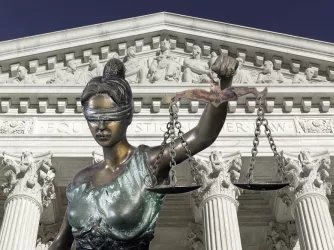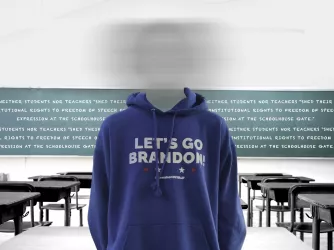Table of Contents
U. Chicago’s ‘Academic Freedom’ Letter a Win for Campus Speech [UPDATED]
The University of Chicago (UC) has pushed back against the nationwide trend toward student-led calls for censorship with a letter to incoming students telling them not to expect “intellectual ‘safe spaces’” when they arrive on campus this fall. FIRE hopes this will be the first of many requests from colleges and universities asking students to recommit to freedom of expression this academic year.
Importantly, UC has confirmed to FIRE that its statement that it does “not support so-called ‘trigger warnings’” is not a ban on that practice. Critics today have charged that the statement might undermine academic freedom: If UC had banned the use of trigger warnings outright, that would have affected the academic freedom of professors who might choose to use them as a pedagogical tool. If that was UC’s intention, then indeed the concern would be well-placed. Fortunately, UC spokesperson Jeremy Manier assured FIRE that professors maintain broad latitude to engage in teaching practices as they see fit or to accommodate student requests.
The letter, written by Dean of Students Jay Ellison, reads in its entirety as a staunch defense of academic freedom. Sent to incoming students along with the book Academic Freedom and the Modern University: The Experience of the University of Chicago, Ellison’s letter condemns certain recent phenomena that imperil free inquiry on college campuses:
Our commitment to academic freedom means that we do not support so-called “trigger warnings,” we do not cancel invited speakers because their topics might prove controversial, and we do not condone the creation of intellectual “safe spaces” where individuals can retreat from ideas and perspectives at odds with their own.
Fostering the free exchange of ideas reinforces a related University priority—building a campus that welcomes people of all backgrounds. Diversity of opinion and background is a fundamental strength of our community. The members of our community must have the freedom to espouse and explore a wide range of ideas.
That UC has taken this bold and important step is no surprise to FIRE: UC is a leader among colleges and universities in its approach to freedom of speech. Last year, faculty members spearheaded the hugely influential Chicago Statement, which FIRE has endorsed and promoted as a gold standard for universities articulating a commitment to free expression on campus.
Earlier this year, the university also earned FIRE’s highest, “green light” rating by abolishing its speech codes in cooperation with FIRE so that its policies fully respect student and faculty free expression rights.
UC students, including at least one member of the FIRE Student Network, have also been speaking out in favor of free speech in ways that helped to lay the groundwork for the university’s recent letter.
Matthew Foldi, a rising UC junior, president of the school’s College Republicans, and a member of the FIRE Student Network, worked closely with FIRE staff on a pro-speech resolution to prevent shout-downs of campus speakers at UC. Foldi presented the resolution to UC’s Student Government General Assembly earlier this year, and he reports that the resolution’s supporters (including students, faculty, and administrators) were shocked when it was voted down and then tabled indefinitely. That, Foldi says, may have given UC administrators more “urgency” to act formally.
FIRE hopes that students, faculty, and administrators nationwide take a cue from UC and recommit to freedom of speech on their own campuses.
Read the full text of UC's letter below:
Update (5:08 p.m.): UC Law School professor Geoffrey Stone, who chaired the faculty committee that drafted the Chicago Statement in 2015, tells FIRE: "In reaffirming the university's long-standing commitment to academic freedom, the Dean of Students' letter should come as no surprise to entering students, who no doubt chose Chicago because of its robust intellectual climate that is designed to prepare its graduates to be effective citizens when they face the rough-and-tumble realities of the real world.”
Recent Articles
FIRE’s award-winning Newsdesk covers the free speech news you need to stay informed.

Supreme Court must halt unprecedented TikTok ban to allow review, FIRE argues in new brief to high court

Australia blocks social media for teens while UK mulls blasphemy ban

Free speech advocates converge to support FIRE’s ‘Let's Go Brandon’ federal court appeal
